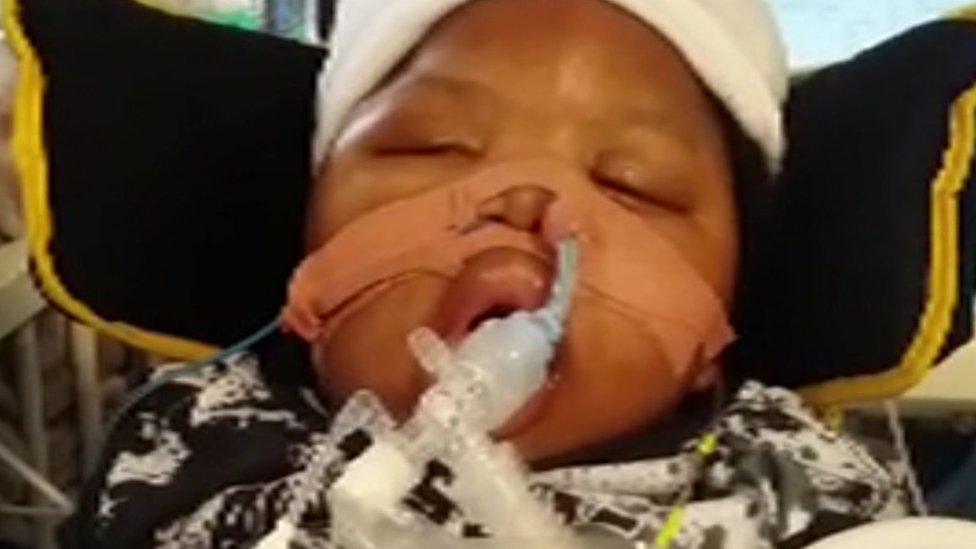End-of-life case parents call for naming of doctors
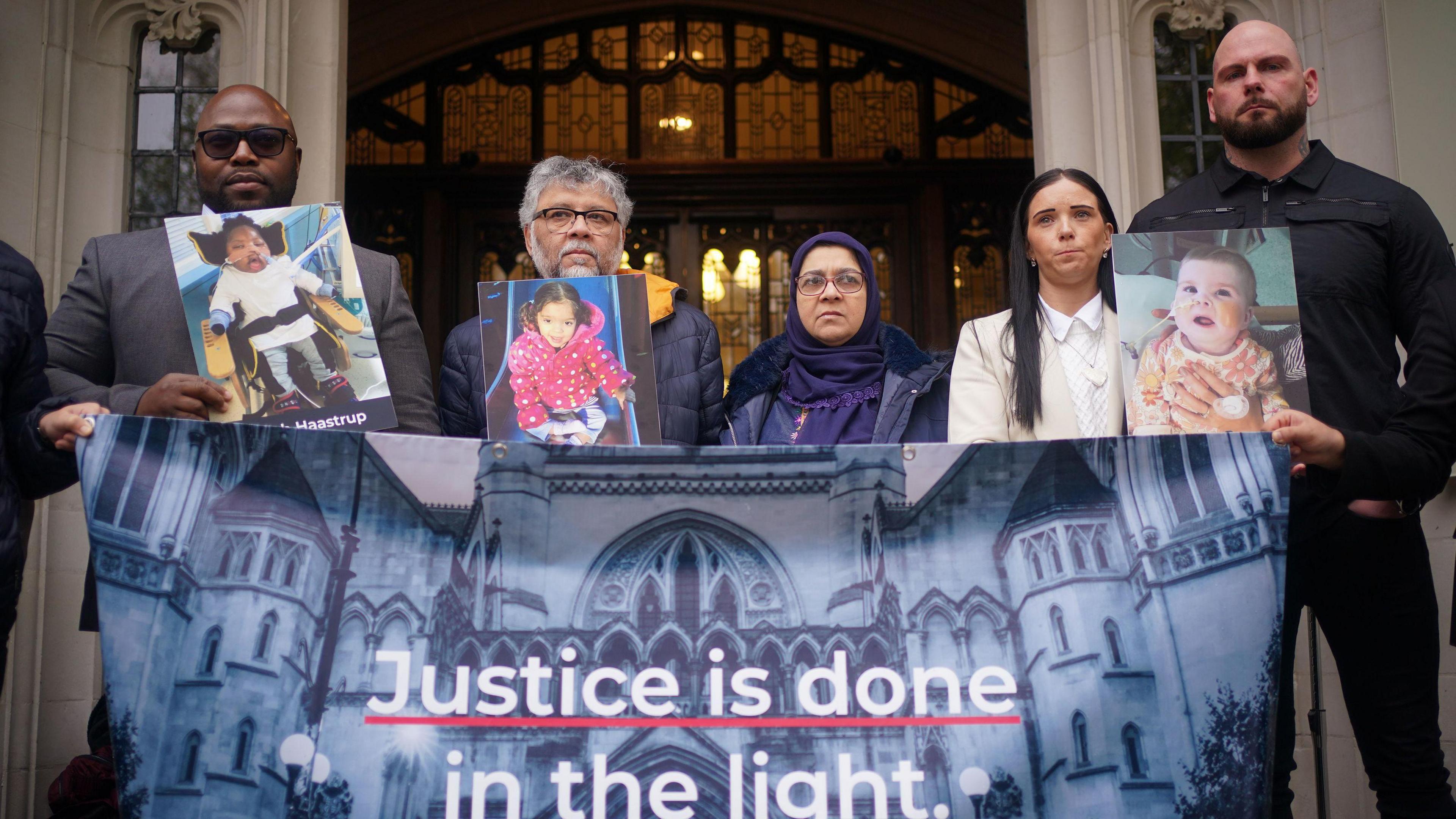
Parents of deceased children gathered outside the Supreme Court on Monday
- Published
Parents who claim they were "gagged" in legal proceedings about their dying children have gathered at the Supreme Court, as justices consider allowing the naming of doctors involved in two end-of-life cases.
Isaiah Haastrup, aged 12 months, and Zainab Abbasi, six, were at the centre of disputes prior to their deaths in 2018 and 2019 respectively.
Indefinite court orders barring the naming of doctors involved were put in place.
The children's parents won a Court of Appeal fight to have the clinicians named, but NHS trusts in Newcastle and London are challenging that in the UK's highest court.
Several families, including the parents of Indi Gregory and the mother of Archie Battersbee who were involved in similar high-profile legal battles, attended the Supreme Court on Monday.
The hearing is due to conclude on Tuesday with a decision expected in writing at a later date.
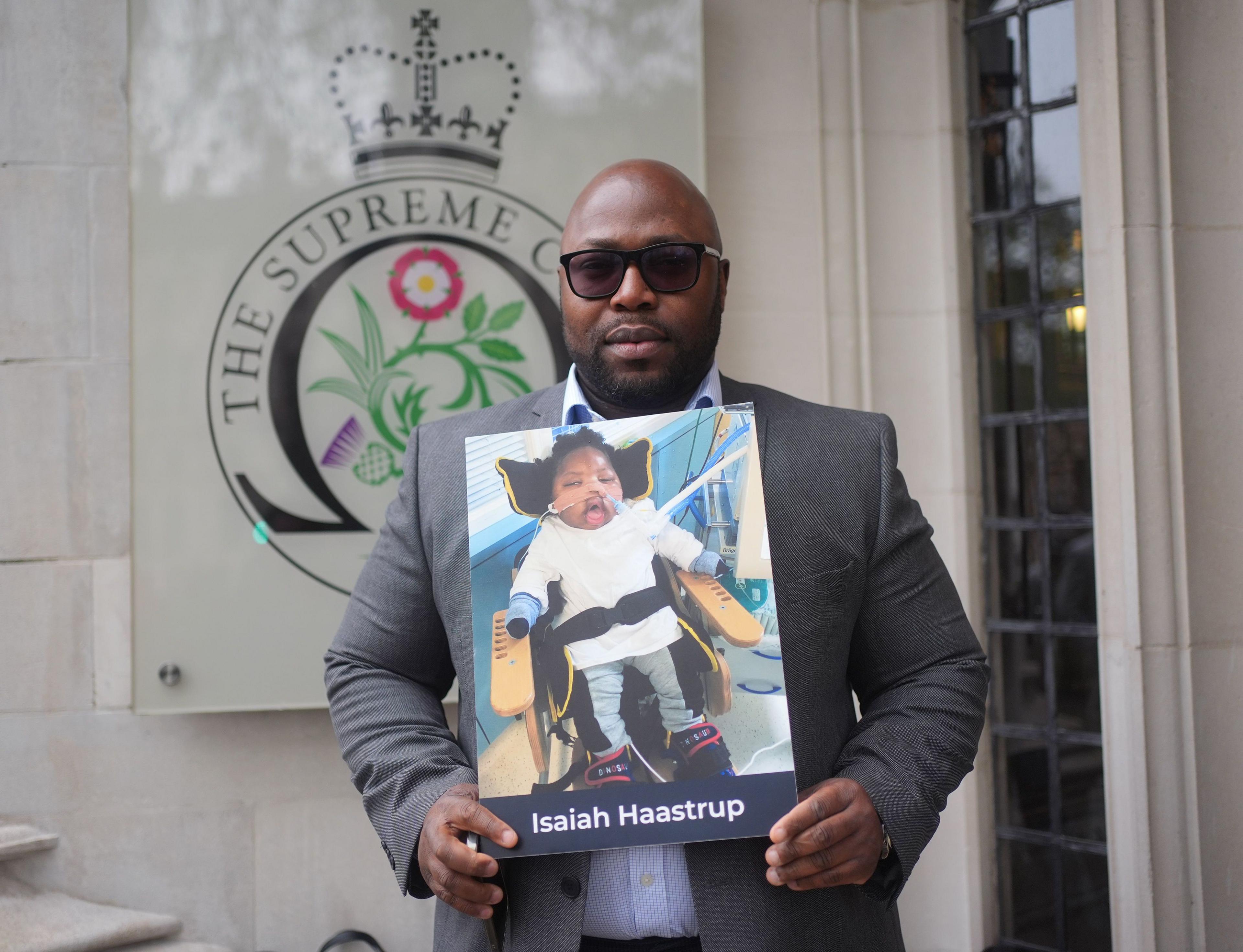
Isaiah's father Lanre Haastrup said he could understand "at that time" why the reporting restriction was made
Isaiah suffered "catastrophic" brain damage after being deprived of oxygen at birth and died in March 2018.
A High Court judge had given doctors permission to provide only palliative care - against his parents' wishes, and King's College Hospital Trust settled a medical negligence claim with the family.
Ahead of Monday's hearing, Isaiah's father Lanre Haastrup said: "I want to tell my story, my story is not complete when the characters are not named.
"There's no point of having [the naming restriction] in place any more," he said, adding that his son was a "fighter".
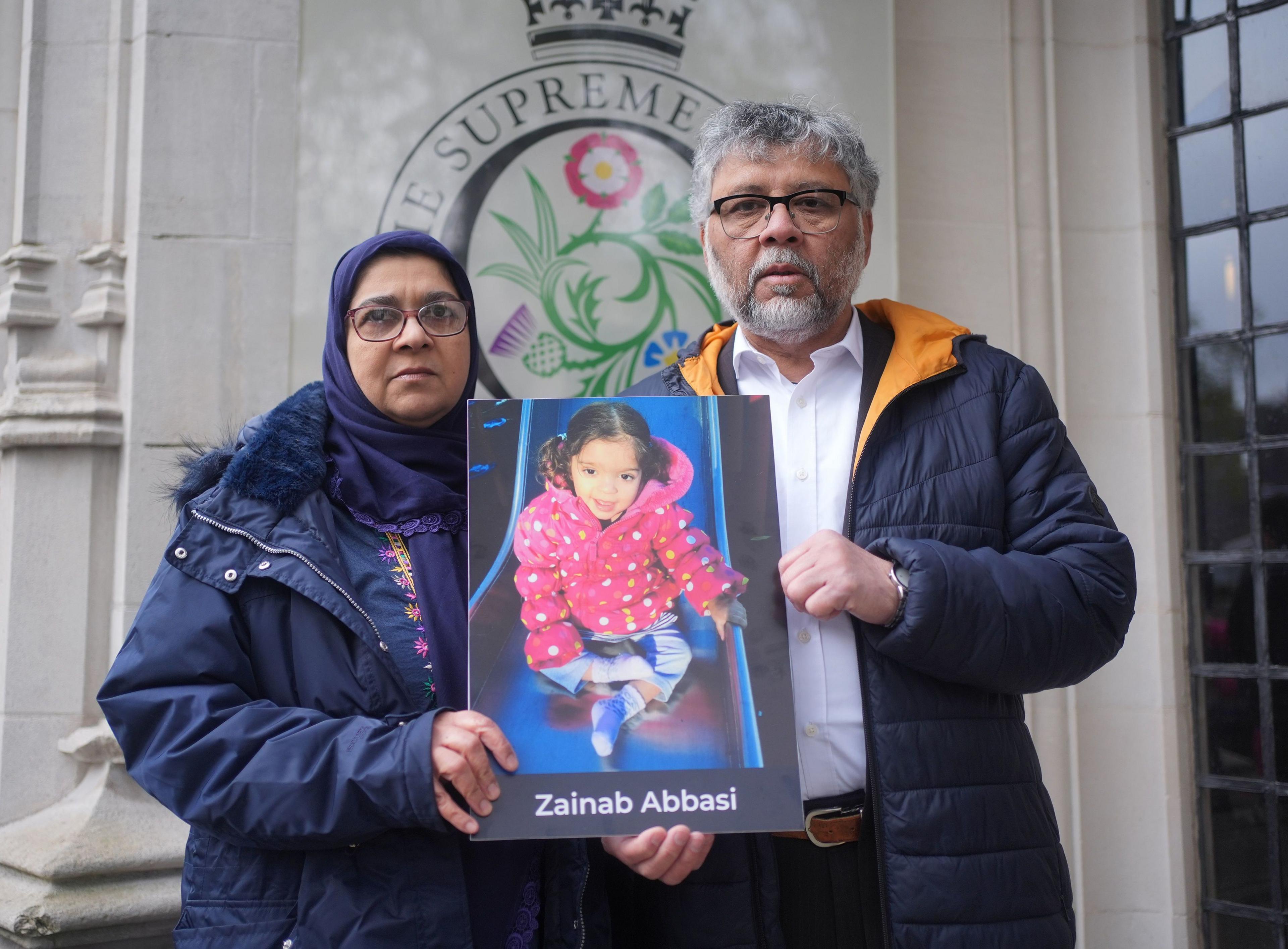
Aliya Abbasi, Zainab's mother, described her daughter as "the greatest blessing"
Zainab's parents Rashid and Aliya Abbasi had raised concerns over the care at Newcastle's Great North Children's Hospital.
Their daughter was born with a "rare and profoundly disabling" inherited neurodegenerative condition and died in September 2019.
Ahead of the hearing, Dr Abbasi said: "Her smile lit up the room even when she was poorly.
"We've lost our daughter, we've lost everything, but we just feel that there are so many other Zainabs out there, there's so many other families, and we just have to speak up for the truth."
'Emotive issues'
In a ruling last year, three judges at the Court of Appeal said the rights of the parents to "tell their story" outweighed the privacy rights of the clinicians and staff that remained "long after" the court orders were made.
But Gavin Millar KC, for Newcastle Upon Tyne Hospitals NHS Foundation Trust and King's College Hospital NHS Foundation Trust, said the Court of Appeal's decision "contains a number of clear and obvious missteps".
In written submissions for Monday's hearing, the barrister said the judge who originally upheld the court orders "had well in mind the fact that the identities of the clinicians would be publicised in conjunction with allegations being made against them by the parents, connected to the emotive issues in the end-of-life proceedings".
However, in written submissions for the parents, barrister Bruno Quintavalle said: "Confidentiality is owed by the clinician to the patient not by the patient to the clinician.
"A patient may lawfully make public comment, either positive or negative, about the treatment he has received from a named clinician.
"Clinicians, like other professionals, are well aware of this and so cannot have any expectation that their professional relationship will be kept permanently private."
The five Supreme Court justices hearing the case will receive evidence from a number of medical bodies, including the British Medical Association and the Royal College of Nursing.
Follow BBC Newcastle on X (formerly Twitter), external, Facebook, external and Instagram, external. Send your story ideas to northeastandcumbria@bbc.co.uk
Related topics
- Published31 March 2023
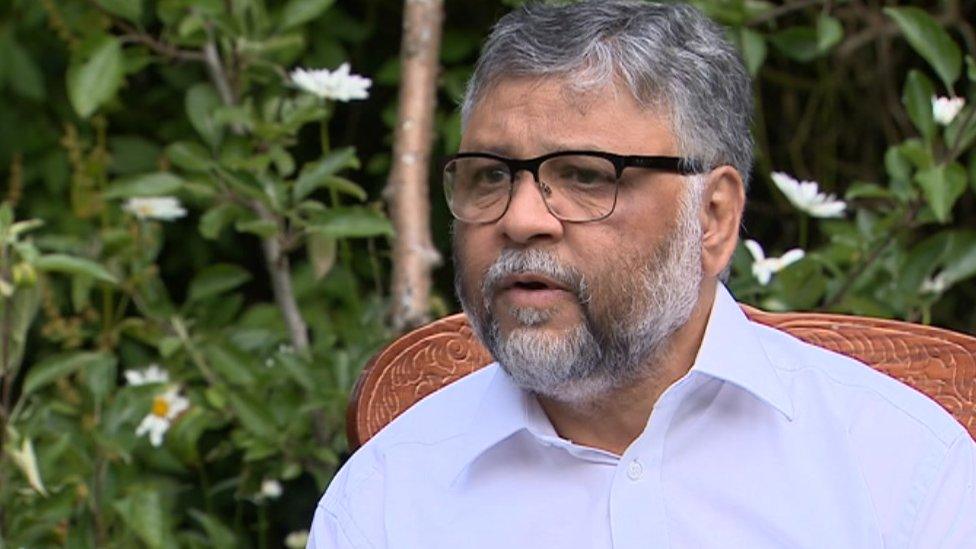
- Published5 February 2021
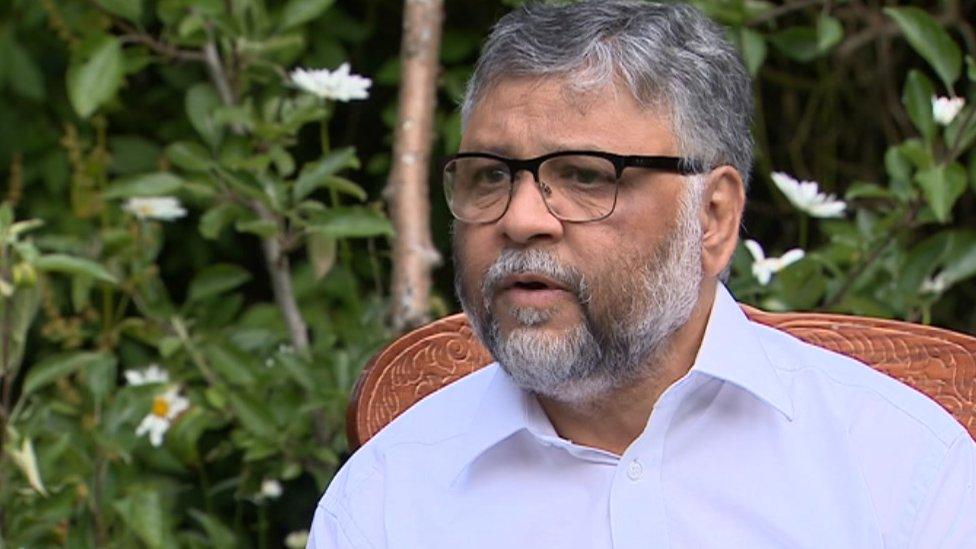
- Published4 February 2021
